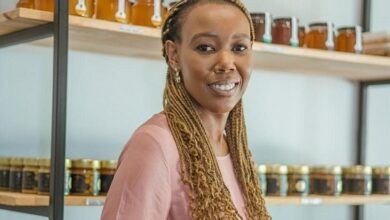How to start a Online platform for local food producers and farmers in South Africa

South Africa boasts a rich agricultural landscape, with a multitude of local food producers and farmers cultivating fresh and high-quality produce. However, many of these producers face challenges when it comes to reaching a wider consumer base and promoting their products effectively. To bridge this gap and empower local food producers, establishing an online platform can be a game-changer. This article will guide you through the process of starting an online platform for local food producers and farmers in South Africa, unlocking new opportunities for both producers and consumers.
Step 1: Define Your Vision and Objectives Before diving into the technical aspects, it’s crucial to define your vision and objectives for the online platform. Determine what problem you aim to solve, whether it’s connecting consumers with local farmers, promoting sustainable and ethical farming practices, or supporting small-scale food producers. A clear vision will help shape your platform’s design, features, and target audience.
Step 2: Research and Connect with Local Producers Identify and connect with local food producers and farmers in different regions of South Africa. Conduct thorough research to understand their products, farming practices, and supply capacity. Building strong relationships with producers is essential for creating a reliable and diverse supply chain on your platform. Visit farmers’ markets, attend agricultural exhibitions, and engage with producer associations to establish connections and gain insights into the local food landscape.
Step 3: Develop an Engaging Online Platform Design and develop a user-friendly online platform that showcases the products of local food producers effectively. Ensure the platform is visually appealing, intuitive, and mobile-friendly to cater to a wide range of users. Incorporate features that allow producers to create profiles, list their products, and provide detailed information about their farming practices and certifications. Implement search filters to help consumers find products based on location, category, or specific dietary requirements.
Step 4: Establish Secure Payment and Delivery Systems Create a secure payment gateway to facilitate seamless transactions between consumers and producers. Choose a reliable payment provider that supports local payment methods and ensures the safety of financial transactions. Additionally, set up a delivery system that enables producers to deliver their products to consumers efficiently. Consider partnering with local logistics providers or establishing your delivery network to guarantee timely and reliable deliveries.
Step 5: Promote and Market the Platform To attract consumers and drive traffic to your platform, implement a comprehensive marketing strategy. Utilize social media platforms, such as Facebook, Instagram, and Twitter, to create engaging content and reach a wider audience. Collaborate with local influencers, food bloggers, and culinary experts who can endorse your platform and highlight the benefits of supporting local food producers. Implement referral programs, discounts, and loyalty rewards to encourage repeat customers and word-of-mouth recommendations.
Step 6: Ensure Regulatory Compliance and Support Understand and comply with relevant regulations and guidelines pertaining to online platforms, food safety, and consumer protection. Familiarize yourself with local laws and certifications that govern the food industry in South Africa, such as organic certifications or fair trade standards. Offer guidance and support to producers regarding compliance with these regulations, helping them navigate the legal landscape effectively.
Step 7: Foster Community Engagement Create a sense of community on your online platform by facilitating interactions between producers and consumers. Include features like customer reviews, ratings, and comments to encourage feedback and build trust. Organize virtual events, workshops, or webinars to educate consumers about sustainable farming practices, healthy eating, or cooking techniques. By fostering a vibrant community, you’ll enhance the overall user experience and strengthen the bond between producers and consumers.
Starting an online platform for local food producers and farmers in South Africa presents an incredible opportunity to support and empower small-scale producers while providing consumers with access to fresh, locally sourced food. By following these steps and focusing on building strong relationships, creating an engaging platform, and implementing effective marketing strategies, you can establish a successful online platform that contributes to a thriving local food ecosystem in South Africa. Together, we can create a sustainable future for local food production and consumption.




